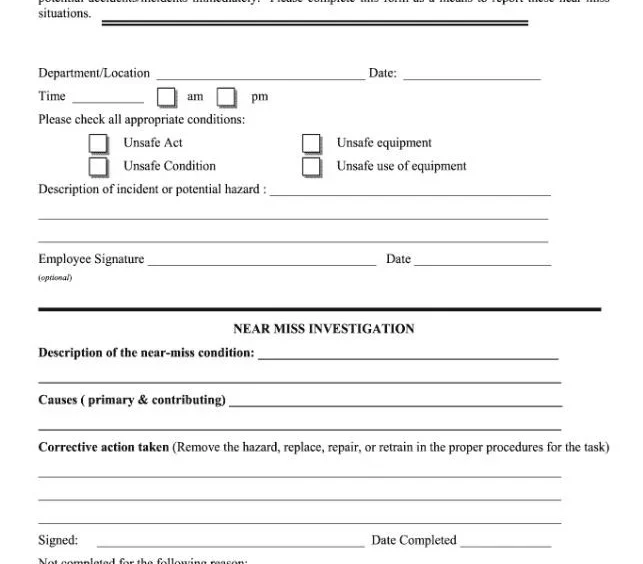What Is a Near Miss?
A Near Miss is exactly what it sounds like, something almost went wrong, but luckily, it didn’t.
No injury.
No damage.
But it could have happened, and it almost did.
It’s like narrowly avoiding a car accident by slamming the brakes in time. At sea, it could be a loose crane wire snapping close to a crew member or someone slipping on a wet deck but managing to hold a railing just in time.
In short, a near miss is a potential accident that was avoided by chance or quick action.
Why Should We Care If Nothing Happened?
That’s the big mistake people make, they ignore near misses just because nothing happened.
But ask yourself: what if luck hadn’t favoured us that day? Would we be filling out an accident report instead? Would someone be in the hospital… or worse?
Every near miss is a warning bell, a free lesson. It’s the sea saying, “Next time, I won’t be this kind.”
Real-Life Shipboard Examples
Let me share a few examples I’ve witnessed personally:
Example 1 – Dropped Spanner from Funnel Deck
A fitter left a tool on the funnel platform. It rolled off and landed just two feet away from a motorman walking below. Near miss reported, investigation done, we added extra mesh guards on funnel railings and made tool belts compulsory.
Example 2 – Wrong Ladder for Tank Entry
During tank inspection, a crew used a short step ladder instead of a certified tank entry ladder. The job was stopped in time. No fall, but it could have ended badly.
Example 3 – Near Electric Shock
An AB was wiping a control panel with a wet cloth during cleaning. Water almost entered the panel vents. Luckily, the officer noticed and stopped him. Again, nothing happened, but it could have.
What to Do When You Spot a Near Miss?
- Stop the job (if ongoing).
- Inform your superior immediately.
- Make a report – even if it feels minor.
- Discuss it during the safety meeting or toolbox talk.
- Identify root causes and apply corrective action.
Most importantly, don’t laugh it off or ignore it just to avoid paperwork.
Why Reporting Near Misses Is Crucial
- Prevents actual accidents
- Improves safety culture onboard
- Builds awareness among crew
- Fulfils ISM and vetting standards
- Makes YOU a responsible seafarer
Many companies, even vetting inspectors, look at how actively near misses are being reported and investigated. It shows the ship is not just reacting to accidents but preventing them.
Common Reasons People Don’t Report Near Misses
“It’s nothing serious, sir.”
“Don’t want unnecessary paperwork.”
“People will laugh at me.”
“No time right now.”
But remember: the sea doesn’t forgive carelessness.
If you ignore today’s warning, tomorrow might not give you a second chance.
Final Thoughts
As Captain, I always tell my crew: We learn more from near misses than from accidents.
They’re like practice drills life gives us for free, but only if we’re wise enough to learn from them.
So next time something almost goes wrong, don’t say “chalta hai / it’s ok)”
Report it. Discuss it. Learn from it.
Because safety isn’t just about what happened, it’s about what could have happened but didn’t.
Stay alert. Stay safe.


